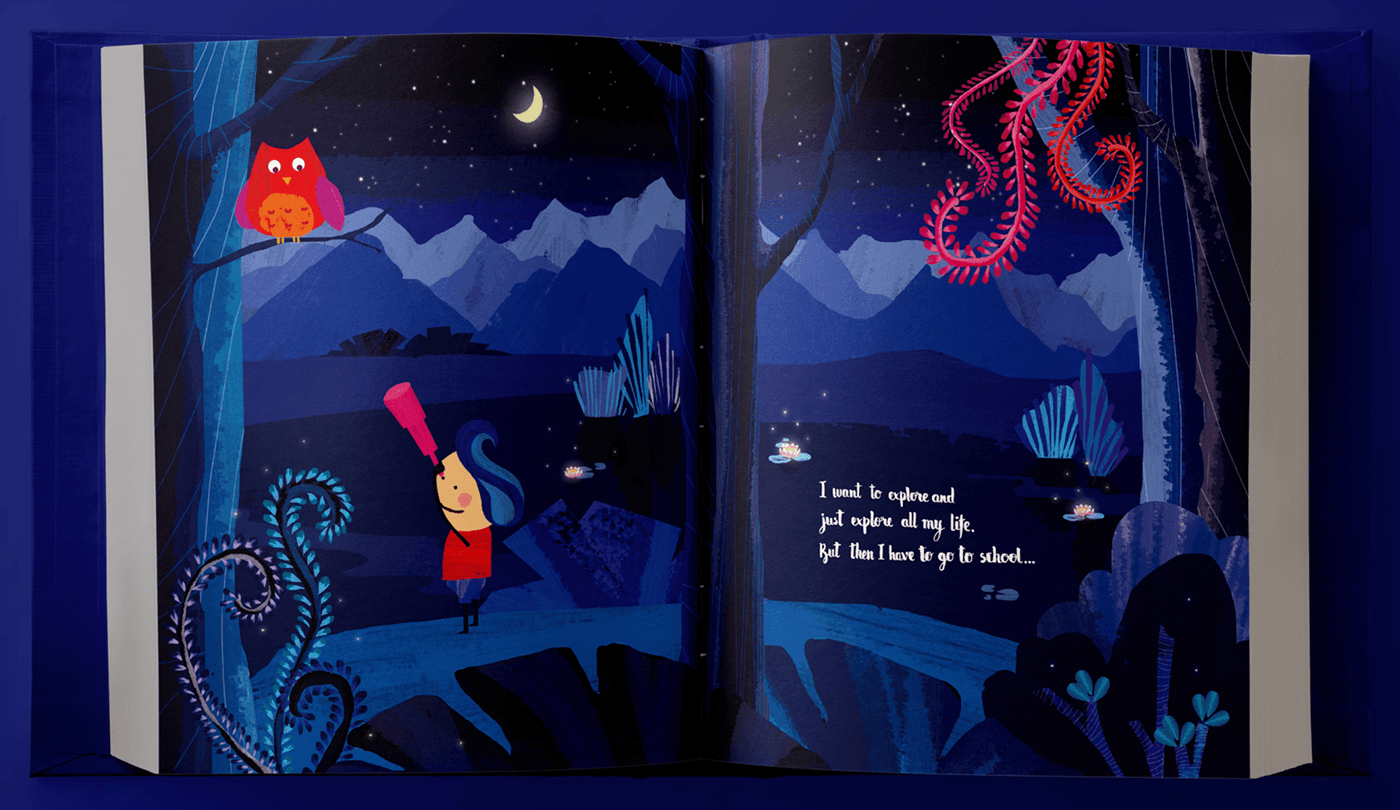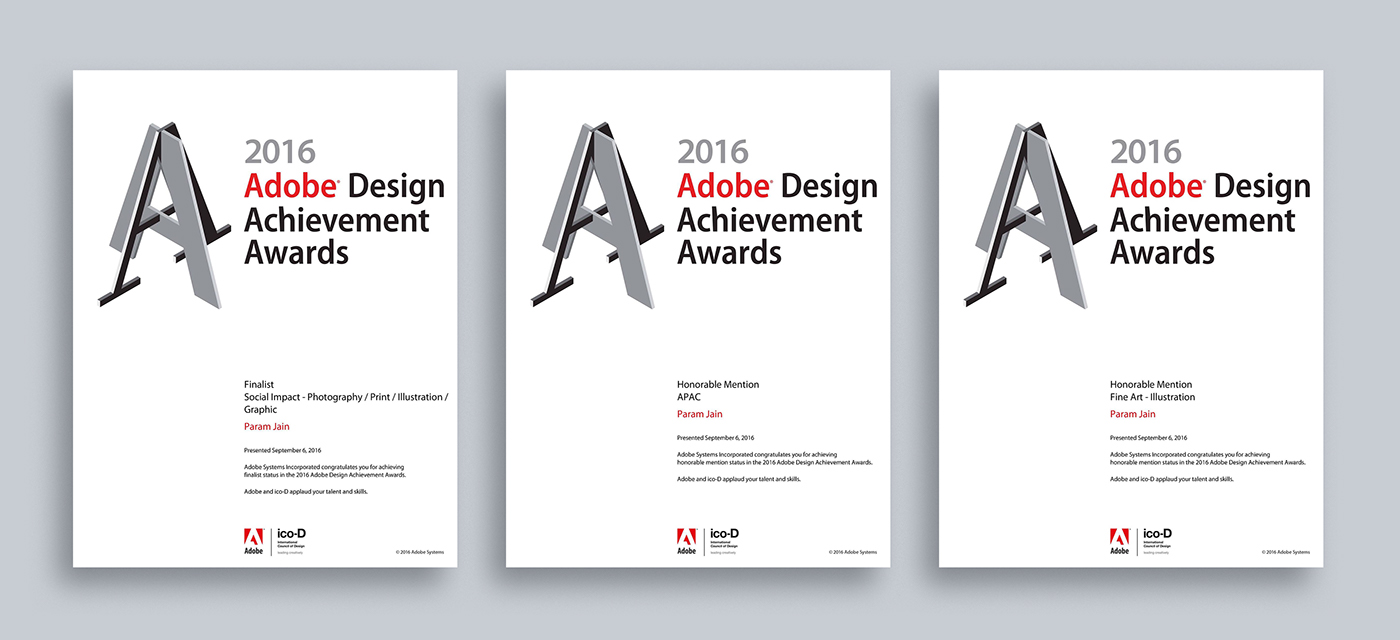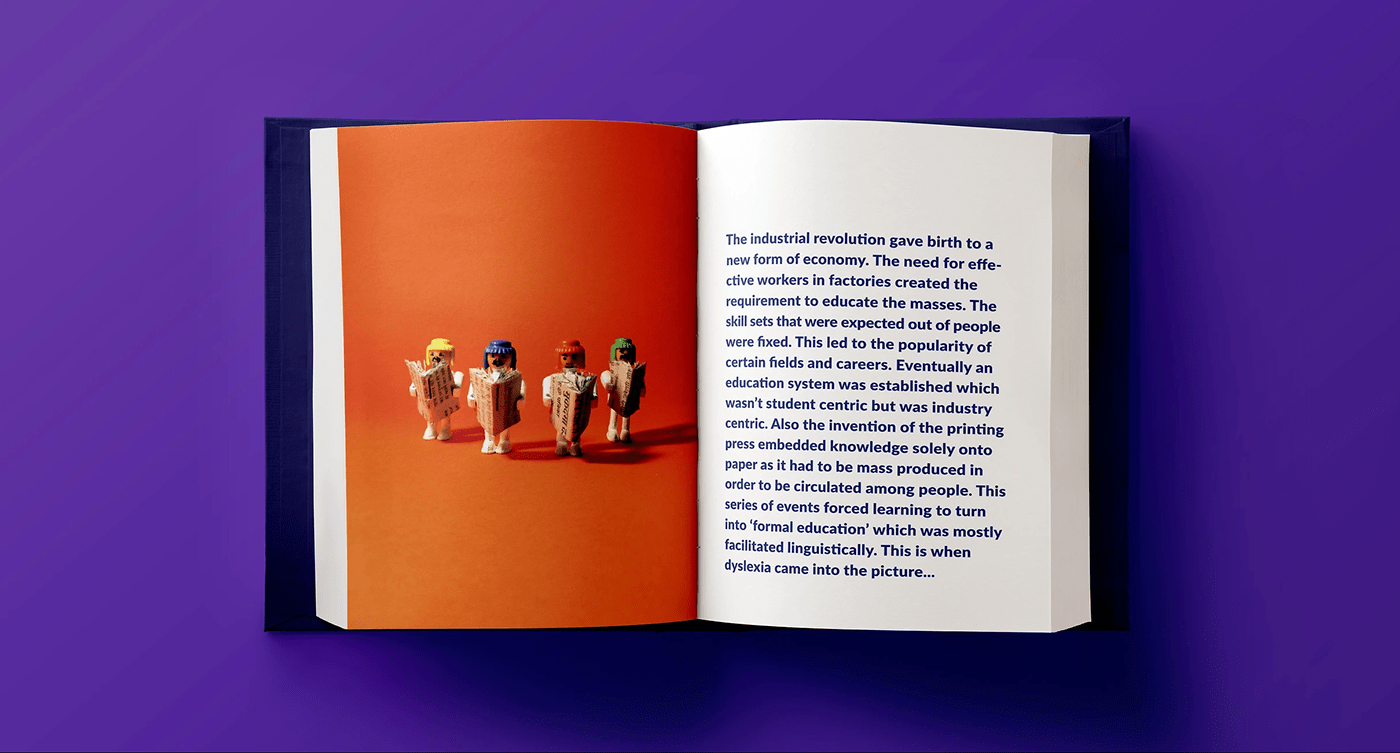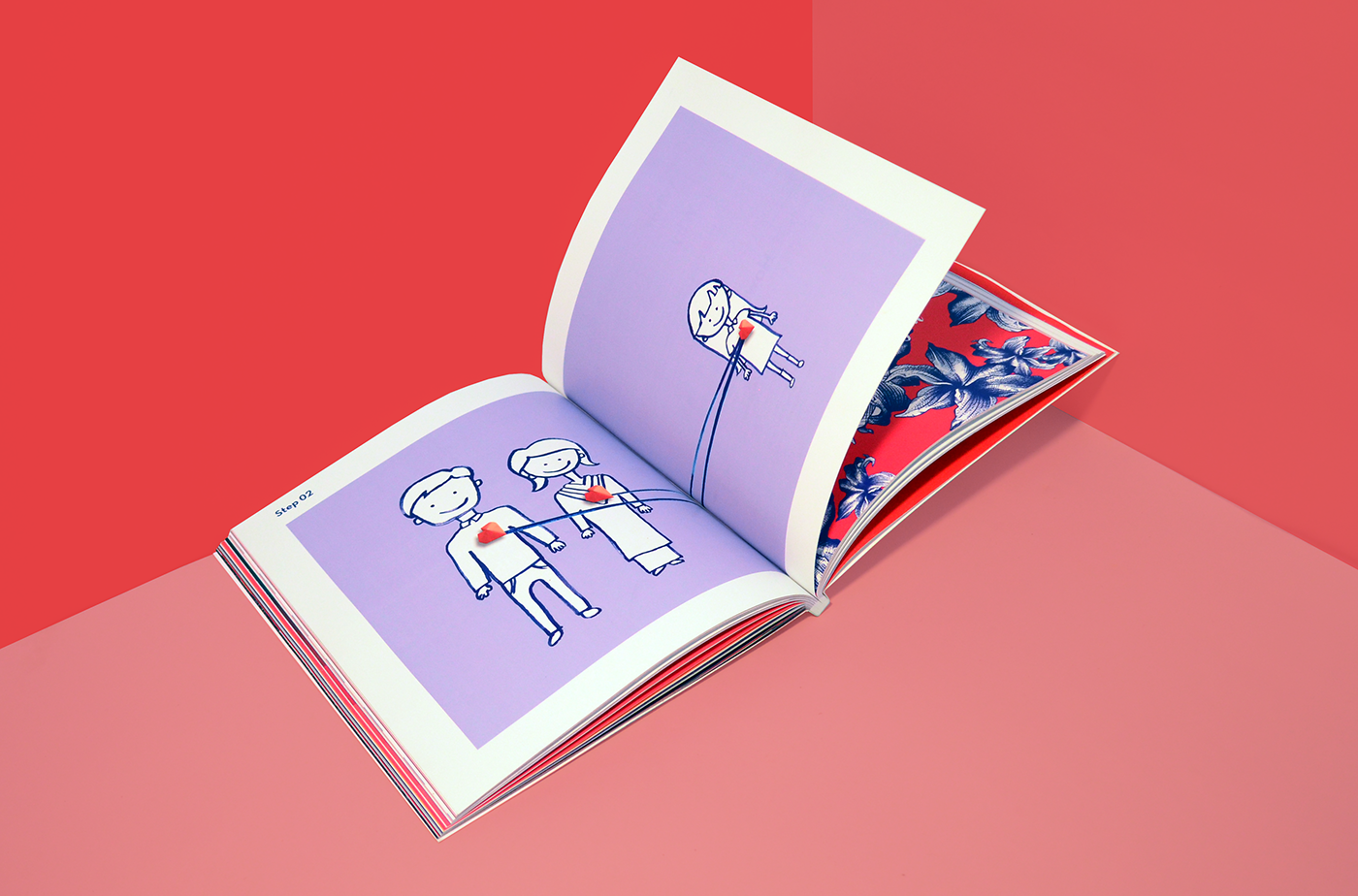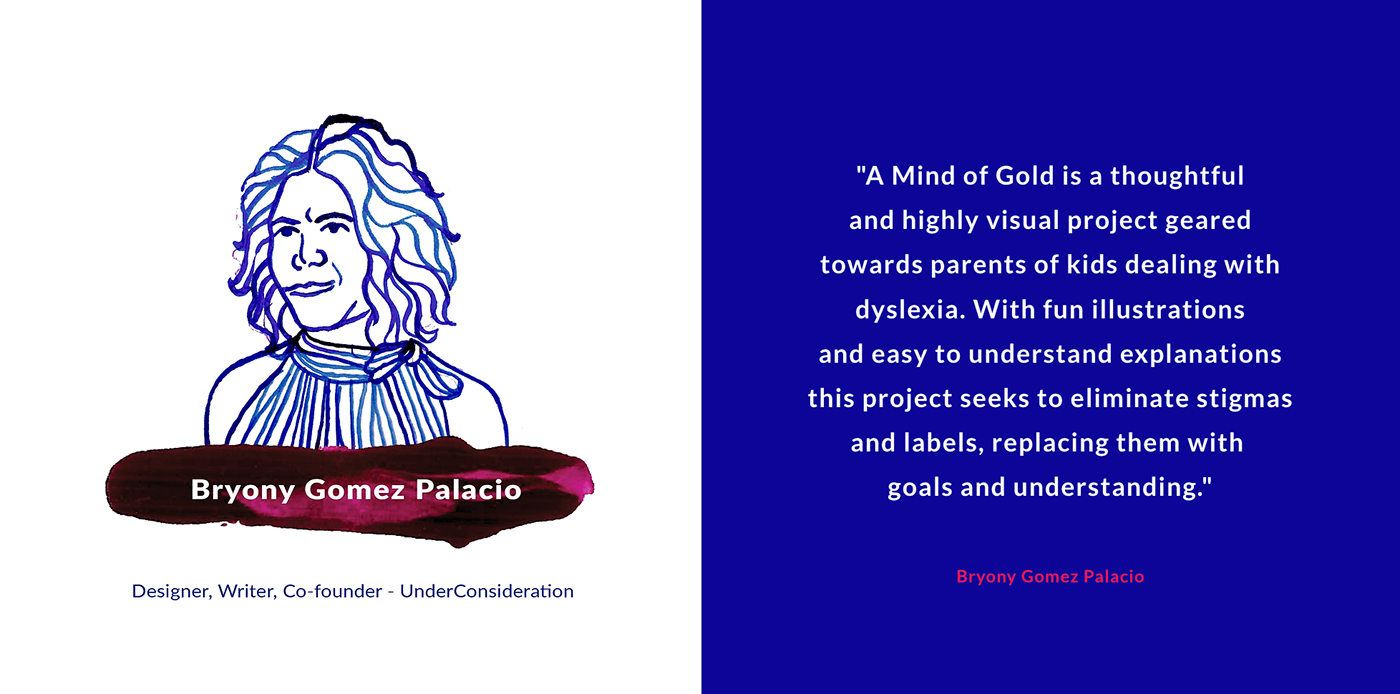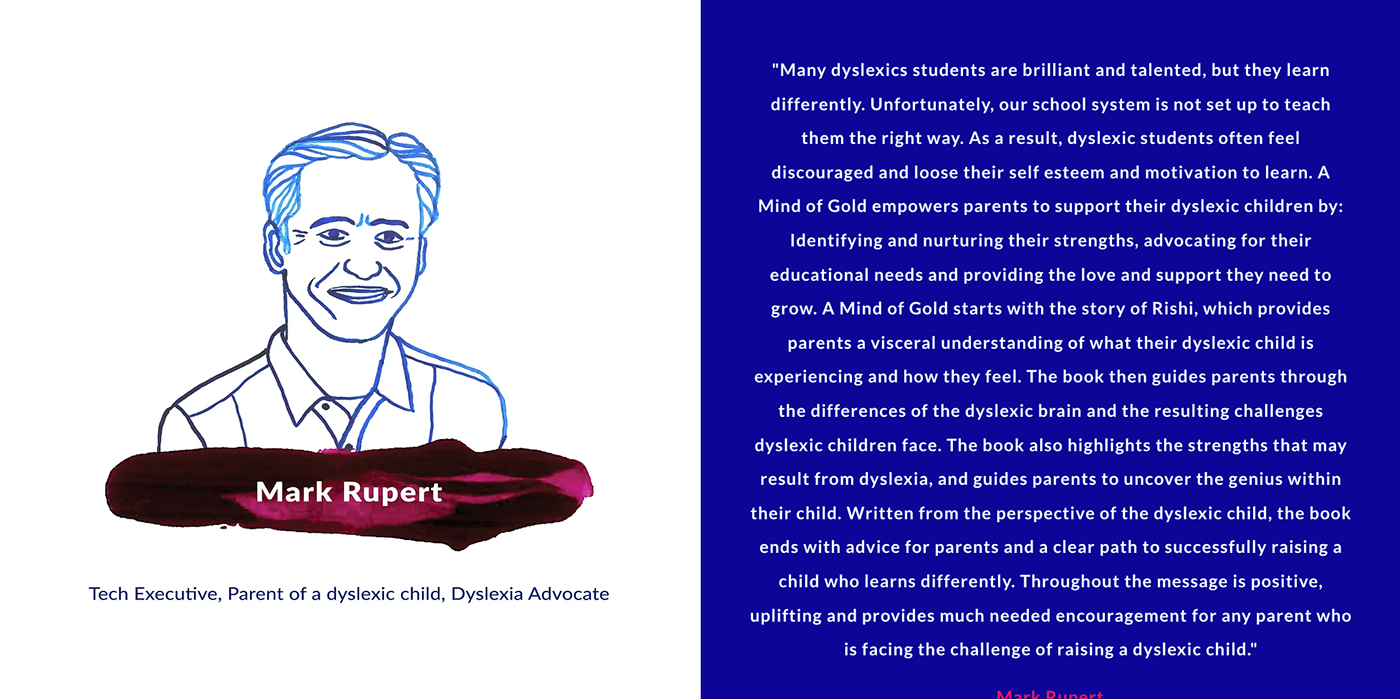
Often very early in life, we encounter labels. We are told we’re ‘sportsmen’ or ‘writers’ or ‘intelligent’ and those labels resonate in our minds throughout the rest of our lives. But there is odium associated with certain labels, for example, ‘dyslexia’. Even though dyslexia is not necessarily associated with retardation, the public mind brands it as a disability. That kind of label begins at home and the parents’ attitude can make or break the child.
The project started as explorations of 'no-logo branding' as a concept to understand branding beyond its immediate collaterals. It further investigates dyslexia and its stakeholders in a societal world. A combination of primary, secondary and tertiary research involving interviews and interaction with specialists, doctors, parents, schools and children highlighted information such as: Dyslexia is not equal to mental retardation. It is not held in high regard in our society. Parents attitude can make or break the child. Disability is an attitude problem. We need to understand, accept and leverage neuro-diversity better.
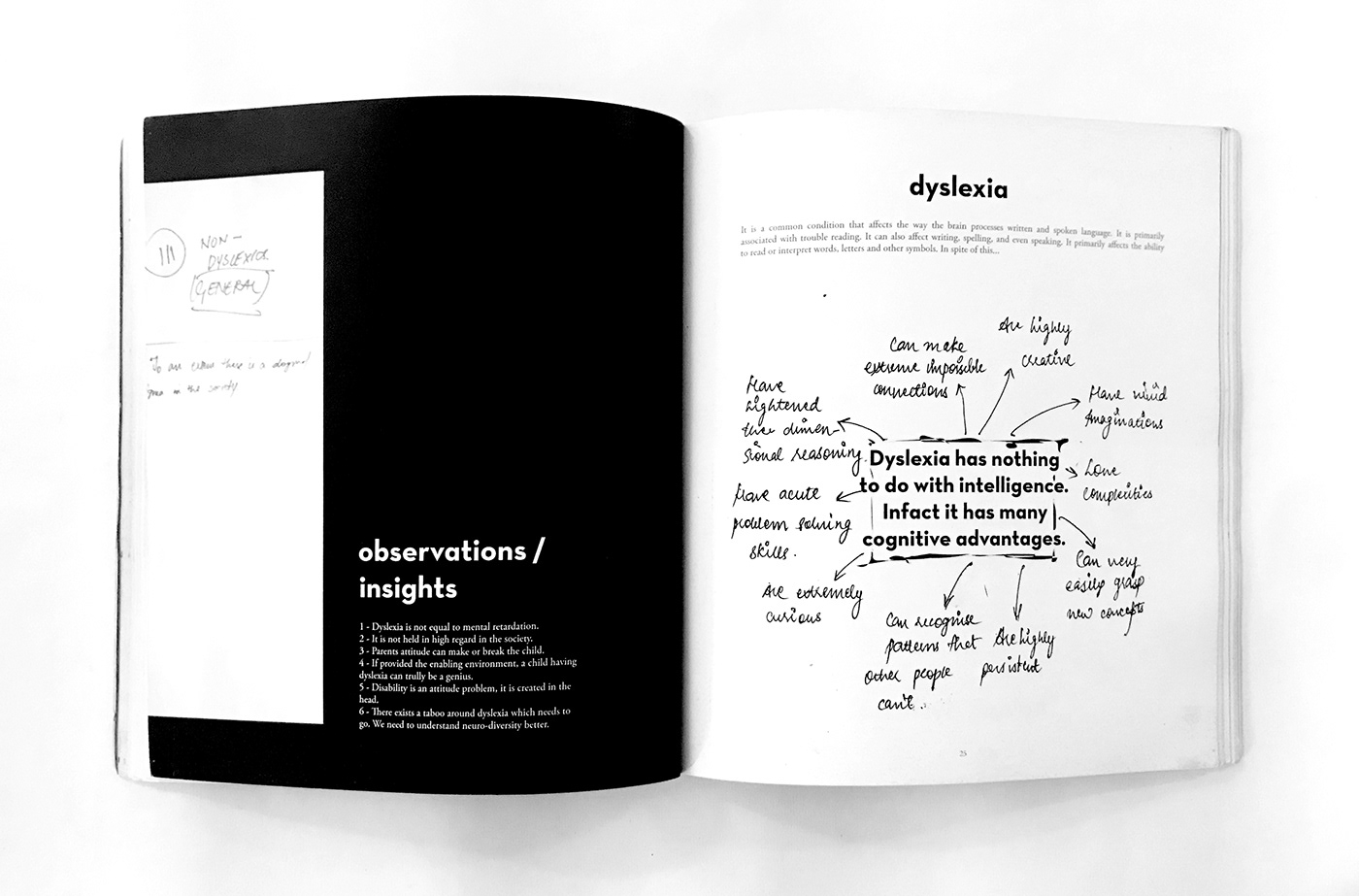
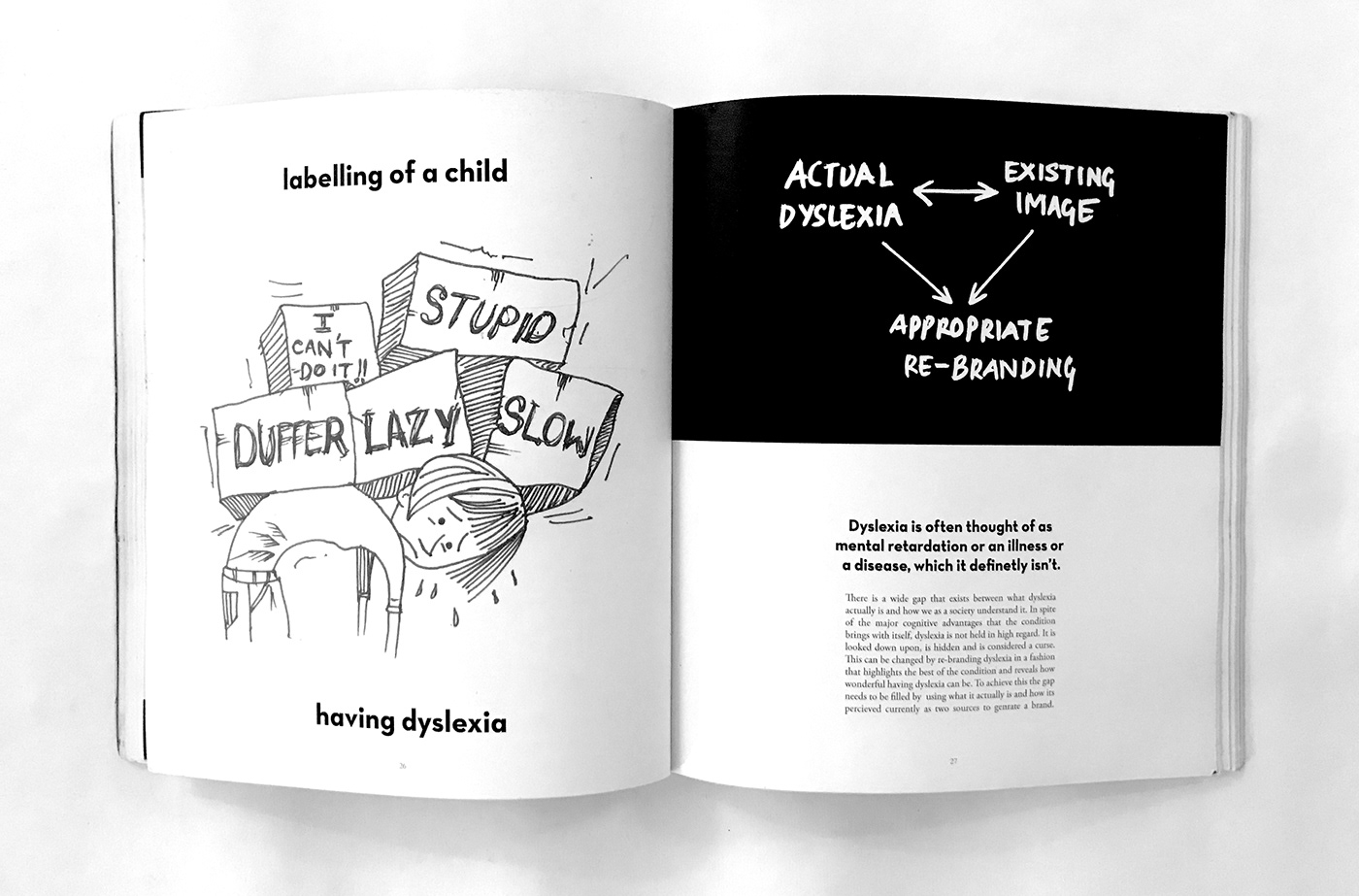
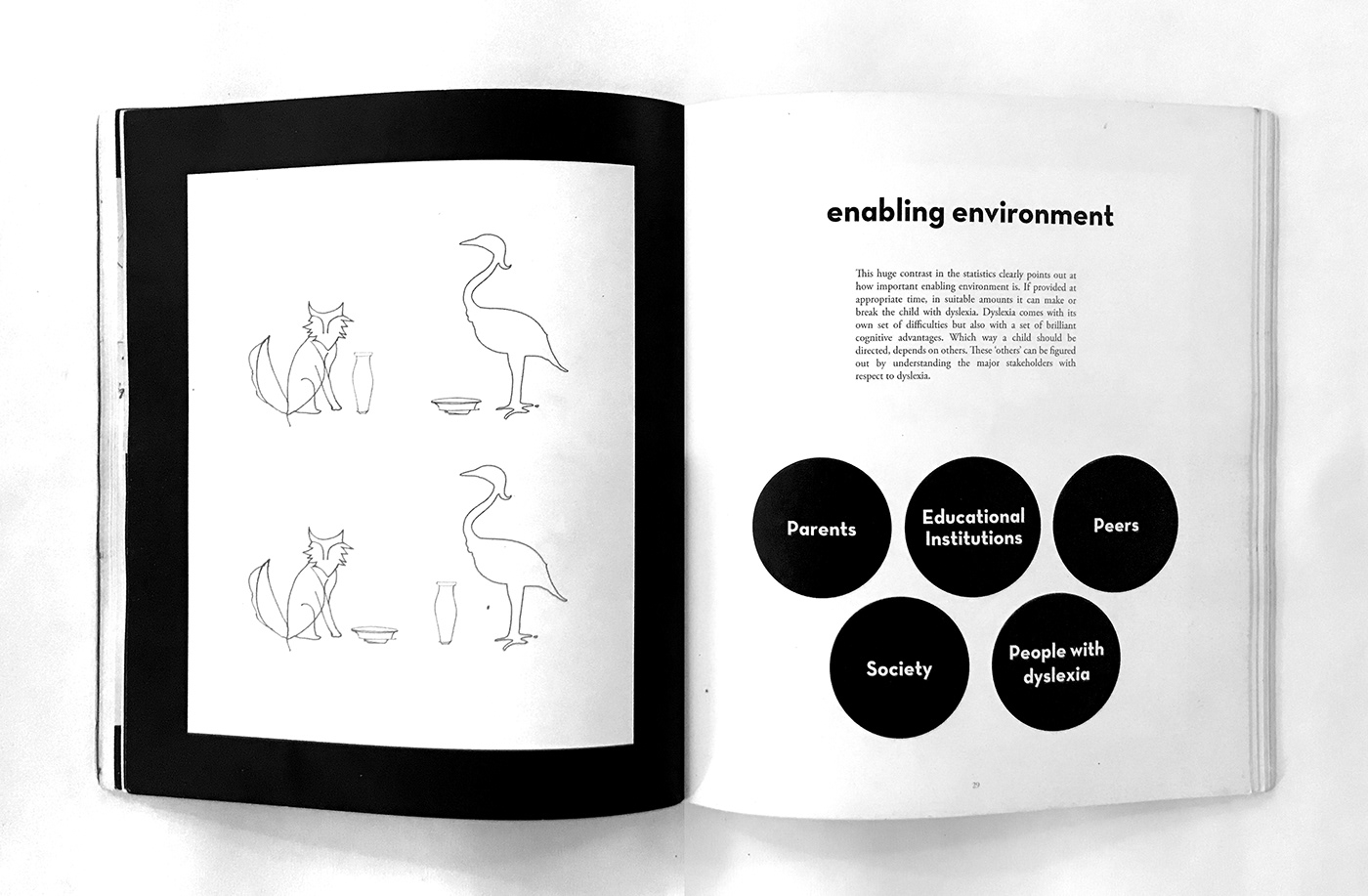

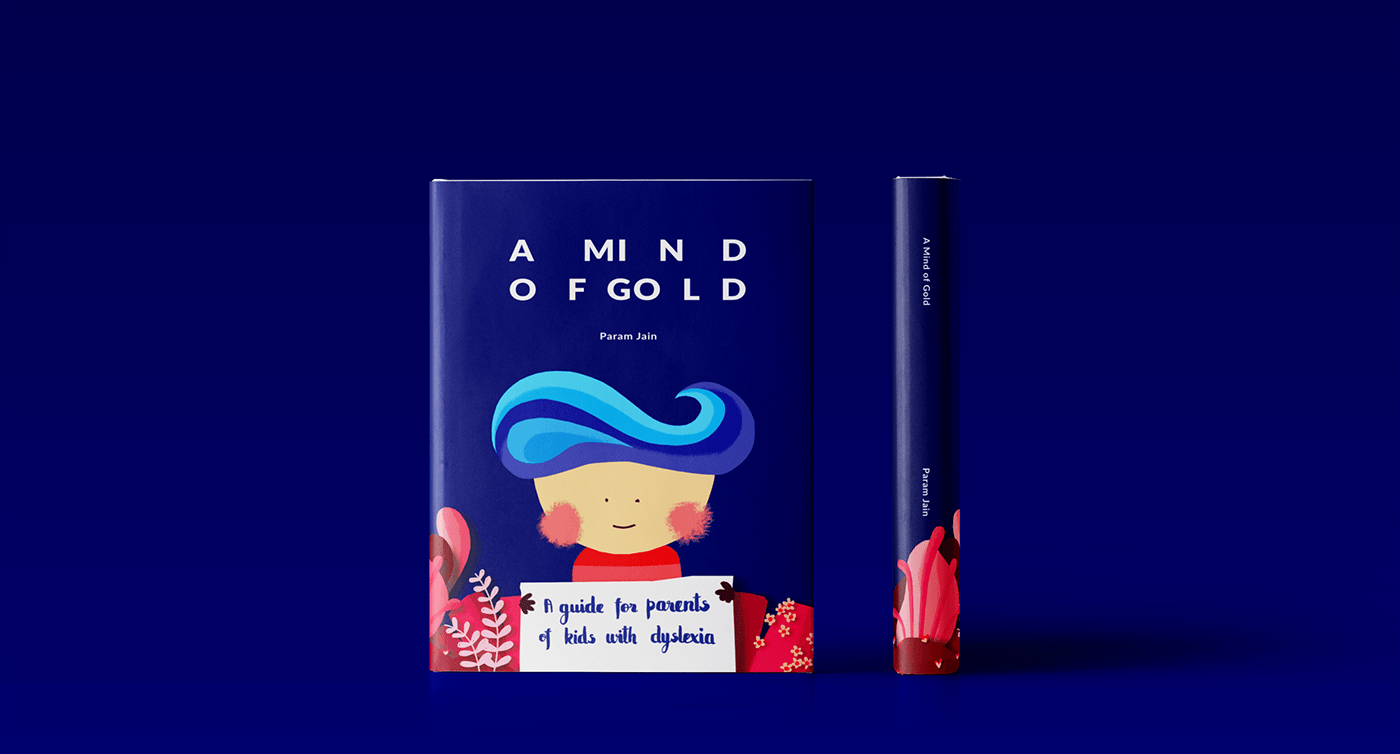
The book 'A Mind of Gold' is designed for parents of kids with dyslexia. While dealing with sensitive and information heavy content, the book has a light, informal and colourful tone. It brands dyslexia as a boon and guides parents to 'un-hide' the genius within their child. The aim of the book is to let parents know why they should, and how they can, own upto their child's dyslexia proudly.
The book comprises of three sections broadly:
The story of Rishi, to help parents understand how their child feels.
Understanding the beauty of dyslexia.
A ten step program to 'un-hide' your child's genius.
Total number of pages: 124
Editors: Mark Rupert, Pandrang Row
